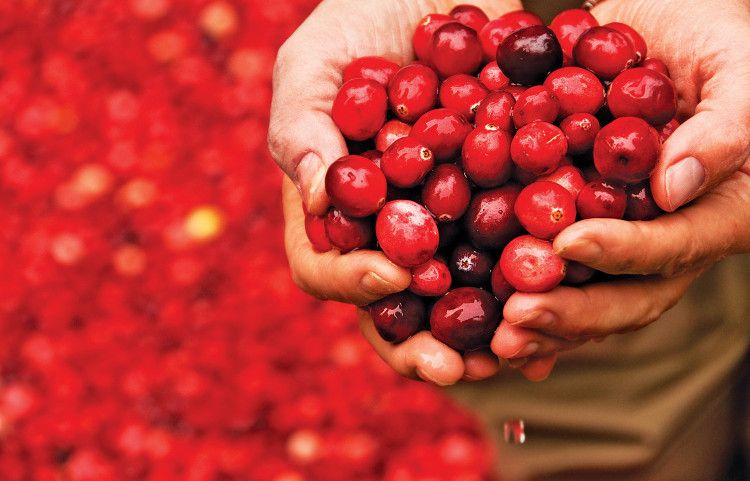Daily consumption of cranberries supports endothelial health, says recent study
A recent study found that daily consumption of cranberries improved endothelial function in healthy adults. The study was funded by the Cranberry Institute and by the Research Committee of the Medical Faculty of Heinrich-Heine University Dusseldorf.
Photo © iStockphoto.com/WilshireImages

A recent study published in Food & Function1 found that daily consumption of cranberries improved endothelial function in healthy adults. The study was funded by the Cranberry Institute and by the Research Committee of the Medical Faculty of Heinrich-Heine University Dusseldorf.
In the double-blind, parallel-group, randomized controlled trial, 45 healthy males were allocated to one month of daily consumption of either cranberry in the form of a 9 gram powder equivalent to 100 g of fresh cranberries, 525 mg total polyphenols or control, which was a 9 g powder with no polyphenols. Researchers assessed flow-mediated dilation (FMD, primary outcome), pulse wave velocity (PWV), aortic augmentation index (AIx), blood pressure, heart rate, blood lipids, and blood glucose at baseline, at two hours on day one, and after one month.
Results showed that cranberry consumption significantly increased FMD at two hours and one month, but did not increase PWV, AIx, blood pressure, heart rate, blood lipids, and glucose. After analyzing plasma and urine, researchers also found that of the 56 and 74 polyphenol metabolites quantified in plasma and urine, 13 plasma and 13 urine metabolites significantly increased two hours post consumption and one day one, respectively, while four plasma and 13 urinary metabolites significantly increased after one month, compared to control.
"The increases in polyphenols and metabolites in the bloodstream and the related improvements in flow-mediated dilation after cranberry consumption emphasize the important role cranberries may play in cardiovascular disease prevention," said Ana Rodriguez-Mateos, PhD, one of the study’s researchers, and senior lecturer in Nutrition at the Department of Nutritional Sciences at King's College London, in a press release. "The fact that these improvements in cardiovascular health were seen with an amount of cranberries that can be reasonably consumed daily makes cranberry an important fruit in the prevention of cardiovascular disease for the general public."
"Our findings provide solid evidence that cranberries can significantly affect vascular health even in people with low cardiovascular risk," adds lead researcher Christian Heiss, MD, Professor of Cardiovascular Medicine at the University of Surrey. "This study further indicates that specific metabolites present in blood after cranberry consumption are related to the beneficial effects."
Reference
- Heiss C et al. “Daily consumption of cranberry improves endothelial function in healthy adults: a double blind randomized controlled trial.” Food & Function, Published online ahead of print on March 22, 2022, https://doi.org/10.1039/D2FO00080F
Prinova acquires Aplinova to further increase its footprint in Latin America
April 7th 2025Prinova has recently announced the acquisition of Brazilian ingredients distributor Aplinova, which is a provider of specialty ingredients for a range of market segments that include food, beverage, supplements, and personal care.










